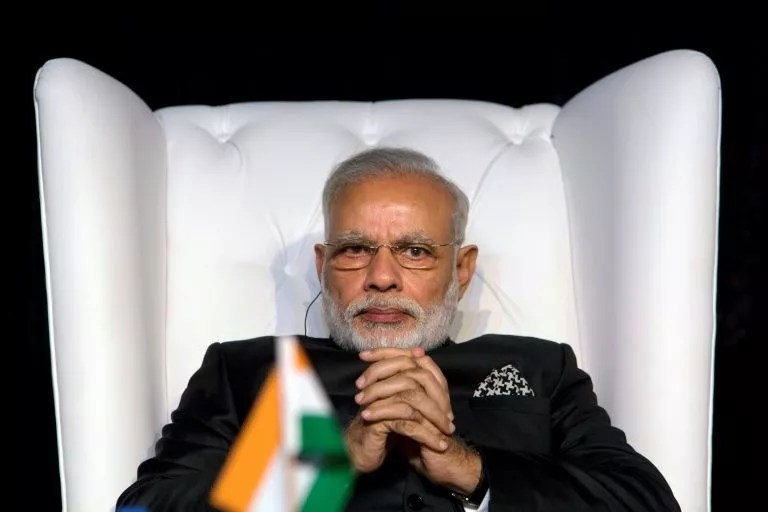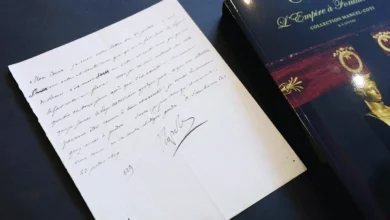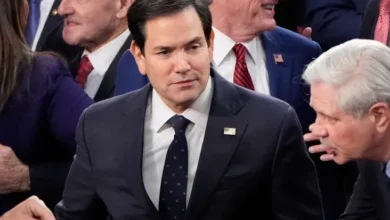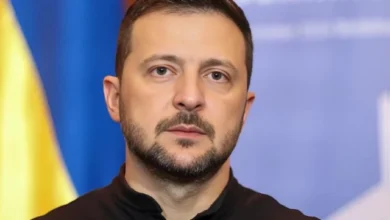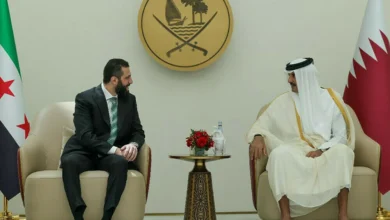Indias Prime Minister Narendra Modi is actively seeking international support to justify possible military action against Pakistan following a deadly attack in Indian Illegally Occupied Jammu and Kashmir (IIOJK), the New York Times reported.
Despite the lack of evidence directly linking Pakistan to the April 22 attack that killed 26 civilians, the report said the prospect of a volatile confrontation between the two nuclear-armed neighbours is growing.
Narendra Modi, beloging to the right-wing Hindu nationalist Bharatiye Jannata Party (BJP) has urgently contacted more than a dozen world leaders and summoned envoys from more than 100 foreign missions to the Ministry of External Affairs for high-level briefings, the report said.
Diplomatic sources cited by the New York Times said the Indian effort appears focused not on de-escalating tensions, but on building international backing for potential military action.
Without naming Pakistan, Modi in a speech vowed severe punishment and pledged to raze “terror safe havens.”
In IIOJK, Indian security forces have launched a sweeping crackdown, arresting hundreds of people as they search for the perpetrators.
India has also announced moves to disrupt water flow to Pakistan, suspended the 1960 Indus Waters Treaty, expelled Pakistani diplomats, and ordered the immediate departure of Pakistani citizens visiting India.
Islamabad has responded by suspending participation in bilateral agreements, including arrangements concerning the Line of Control, the de facto border between the two countries.
Anti-Muslim sentiment is reportedly intensifying across India, with Kashmiri students facing harassment in other Indian cities and many returning to their homes.
Five days after the attack, India has not officially identified any group as responsible, and little concrete evidence has been presented publicly to support claims of Pakistan’s involvement.
Briefings to diplomats included references to “technical intelligence,” including facial recognition data, linking the attackers to Pakistan, officials said.
Analysts cited in the report warned that India might act without feeling the need to provide detailed evidence, given the broader global distraction by conflicts in Ukraine and Gaza.
Iran, Saudi Arabia and the UN have urged restraint, and the United Nations and European Union have called for dialogue, but major powers, including the United States, remain largely focused elsewhere.
The Trump administration has voiced strong backing for India’s counter-terrorism efforts. US President Donald Trump has described himself as friendly to both India and Pakistan but has not indicated any immediate mediation efforts.
“They will figure it out,” the US president told reported while onboard Air Firce One last week.
Experts noted that the United States has not yet appointed an ambassador to India, suggesting South Asia is not a top priority for Washington.
Daniel Markey, a senior fellow at Johns Hopkins University, said India appears determined to deliver a “spectacular” response compared to the limited impact of its 2019 airstrike against Pakistan after the Pulwama attack.
Markey warned that both India and Pakistan may overestimate their ability to control escalation, risking rapid conflict spirals.
On Tuesday April 22, 26 men were killed at a tourist site in Pahalgam area of Indian Illegally Occuppied Jammu and Kashmir (IIOJK). India claimed without presenting any evidence that there were Pakistani elements linked to the attack, a claim Islamabad denies.
On Wednesday April 23, the Indian Cabinet Committee on Security approved a series of actions including shutting down the Wagah-Attari land transit point, advising Indian nationals against travelling to Pakistan, and formally notifying Islamabad of the suspension of the Indus Waters Treaty.
In response, Pakistan’s National Security Committee (NSC) on Thursday April 24 warned that any attempt by India to block water flow into Pakistan would be treated as an act of war. The statement followed a high-level NSC meeting, which also approved the closure of the Wagah border crossing.
On Friday April 25, the Senate of Pakistan unanimously passed a resolution rejecting India’s allegations linking Pakistan to the Pahalgam attack, calling them baseless and politically motivated.
The Pakistani High Commission in London was vandalised on Saturday April 26, after hundreds of Indian protesters demonstrated outside the building, causing property damage with broken windows and saffron paint.
Pakistan on Sunday accused India of backing vandalism at its High Commission in London, as tensions between the two neighbours continue to escalate across multiple fronts. Following the attacks, British police arrested two individuals allegedly involved in the vandalism.
Federal Minister for Information Attaullah Tarar condemned the attacks, describing them as acts backed by “Indian state and agencies.”

